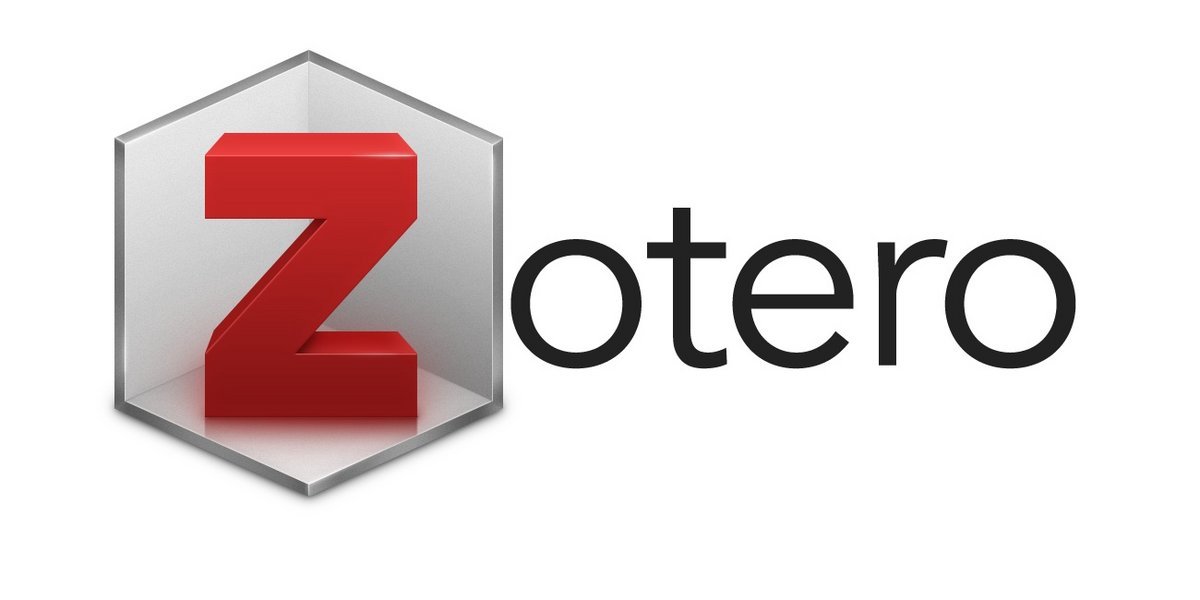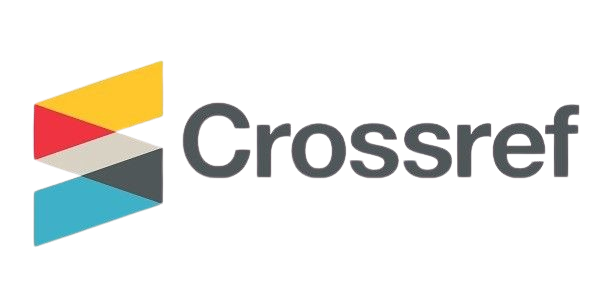Peningkatan Motivasi Belajar Pendidikan Agama Islam Melalui Metode Pemecahan Masalah di Sekolah Menengah Pertama
Enhancing Learning Motivation in Islamic Religious Education Through Problem-Solving Methods in Junior High School
DOI:
https://doi.org/10.70757/kharismatik.v1i1.12Keywords:
Islamic education, learning motivation, problem solving, student engagement, teaching methodAbstract
This classroom action research examines the effectiveness of Problem Solving method in enhancing learning motivation for Islamic Religious Education (PAI) among junior high school SMP Iko Anata Putra, Nagrak, Sukabumi students. Conducted in two cycles with 30 eighth-grade participants, the study employed observation, achievement tests, and motivation questionnaires. Findings revealed substantial improvements across key indicators: instructional quality increased from 69% to 87%, student engagement rose from 62% to 82%, and learning outcomes improved from an average score of 65 (40% mastery) to 78 (85% mastery). Motivation levels showed 13% overall growth, with notable increases in intrinsic motivation components including learning desire (66% to 79%) and activity interest (67% to 80%). The research demonstrates how Problem Solving fosters active learning environments, develops critical thinking skills, and strengthens religious value internalization. These results suggest the method's potential for broader application in PAI instruction, particularly in addressing motivation challenges. Further studies should explore technological integration and long-term cognitive-affective impacts of this approach.
References
Abdullah & Moh. Ali Wafa. (2022). Penerapan Pembelajaran Kooperatif Model Problem Based Learning pada Mata Pelajaran Pendidikan Agama Islam dalam Meningkatkan Motivasi Belajar Siswa di SMPN 5 Bangkalan. Journal Of Early Childhood And Islamic Education, 1(1), 39–51. https://doi.org/10.62005/joecie.v1i1.13
Agustiana, I. A. (2022). Pengoptimalan Penggunaan Teknologi Melalui Quizizz Untuk Meningkatkan Hasil Belajar Peserta Didik Di Man 1 Kota Probolinggo. Muta’allim: Jurnal Pendidikan Agama Islam, 1(4), 388–398. https://doi.org/10.18860/mjpai.v1i4.2334
Ahmadi, A. (2022). Pengaruh Pembelajaran Daring Berbantuan Video Pembelajaran untuk Meningkatkan Hasil Belajar Mata Pelajaran Pendidikan Agama Islam dimoderasi Motivasi Belajar Siswa. JURNAL NALAR PENDIDIKAN, 10(1), 62. https://doi.org/10.26858/jnp.v10i1.23671
’Aisy, L. L. R., Fathurrahman, M., & Khasanah, U. (2022). Implementasi Metode Al-Husna Dalam Meningkatkan Motivasi Dan Hasil Belajar Membaca Al-Qur’an. Al’Ulum Jurnal Pendidikan Islam, 1–13. https://doi.org/10.54090/alulum.116
Alfarizi, Moch. S., Nurhalim, N., Mahfud, A., & Prasetiya, B. (2022). Meningkatkan Motivasi Belajar Pendidikan Agama Islam Melalui Penggunaan Bahan Ajar Berbasis Multimedia Interaktif Pada Siswa Kelas Iv Di Sdn Mayangan 2. Al-ATHFAL: Jurnal Pendidikan Anak, 3(1), 55–68. https://doi.org/10.46773/al-athfal.v3i1.415
Arikunto, S. (2019). Prosedur Penelitian. Bumi Aksara.
Azimah, S. (2022). Meningkatkan hasil belajar materi menghindari minuman keras, judi, dan pertengkaran melalui metode pembelajaran Problem Based Learning (PBL) Peserta Didik Kelas VIII di SMP Negeri 1 Galur. Al-Khos: Jurnal Pendidikan Agama Islam, 2(2), 74–83. https://doi.org/10.62808/al-khos.v2i2.67
Azis, A., Sutarjo, S., & Karyawati, L. (2022). Strategi Guru Pendidikan Agama Islam dalam Meningkatkan Motivasi Belajar PAI di SD Negeri Pasir Jaya 1 Tangerang. FONDATIA, 6(4), 1040–1055. https://doi.org/10.36088/fondatia.v6i4.2342
Banauwe, W. A. (2022). Profesionalisme Guru Pendidikan Agama Islam Dalam Upaya Meningkatkan Motivasi Belajar Siswa Kelas Vii Di Smp Muhammadiyah Melati. Kuttab: Jurnal Ilmiah Mahasiswa, 3(2), 150. https://doi.org/10.33477/kjim.v3i2.2589
Bararah, I. (2022). Inovasi Metode Pembelajaran Pendidikan Agama Islam dalam Meningkatkan Prestasi Belajar Siswa. Jurnal MUDARRISUNA: Media Kajian Pendidikan Agama Islam, 12(2), 401. https://doi.org/10.22373/jm.v12i2.14781
Barbalia, A. A. U., & Tamrin, M. (2022). Strategi Peningkatan Motivasi Belajar Pendidikan Agama Islam melalui Pendekatan Langsung Pada Siswa Kelas XI SMA Negeri 2 Kupang. Ta Lim Jurnal Pendidikan Agama Islam Dan Manajemen Pendidikan Islam, 1(2). https://doi.org/10.59098/talim.v1i2.768
Creswell, J. W. (2012). Educational research: Planning, conducting, and evaluating quantitative and qualitative research (4th ed). Pearson.
Delpasya, K. K. C., Rosadi, A., Ridwan, D., & Nur, R. A. (2022). Pengaruh Penggunaan Model Pembelajaran Inkuiri Terhadap Hasil Belajar PAI Siswa pada Masa Pandemi. In DIAJAR: Jurnal Pendidikan dan Pembelajaran (Vol. 1, Issue 3, pp. 348–355). Yayasan Pendidikan Penelitian Pengabdian Algero. https://doi.org/10.54259/diajar.v1i3.994
Hamdo, S. H. (2022). Hubungan Motivasi Belajar Dan Minat Belajar Terhadap Hasil Belajar Pendidikan Agama Islam Peserta Didik Kelas VIII SMP Negeri 26 Makassar. Jurnal Pendidikan Agama Islam Indonesia (JPAII), 3(2), 35–39. https://doi.org/10.37251/jpaii.v3i2.626
Hamzah, H. (2022). Peranan Guru Pendidikan Agama Islam Dalam Meningkatkan Motivasi Belajar Siswa. Jurnal Pendidikan Agama Islam Indonesia (JPAII), 3(4), 81–84. https://doi.org/10.37251/jpaii.v3i4.639
Hartati, M. (2022). Usaha Guru Pendidikan Agama Islam dalam Meningkatkan Motivasi Belajar Pendidikan Agama Islam. Jurnal Pendidikan Agama Islam Indonesia (JPAII), 3(3), 48–51. https://doi.org/10.37251/jpaii.v3i3.634
Huberman, M. B. M. &A. M. (1992). Qualitative Data Analysis. Sage Publication Inc.
Kemmis, S., McTaggart, R., & Nixon, R. (2014). The action research planner: Doing critical participatory action research. Springer.
Maghfuroh, N. W. (2022). Upaya Meningkatkan Keaktifan Belajar Siswa Melalui Metode Auditory Intellectually Repetition Dalam Pembelajaran Tematik Kelas 5 MI Miftahul Ulum Jember. Ta’limDiniyah: Jurnal Pendidikan Agama Islam (Journal of Islamic Education Studies), 3(1), 178–190. https://doi.org/10.53515/tdjpai.v3i1.50
Malik, A., Purnamasari, P. D., & Syahid, A. (2022). Penerapan Metode Bernyanyi Dalam Meningkatkan Hasil Belajar pada Pembelajaran Pendidikan Agama Islam. Education and Learning Journal, 3(1), 61. https://doi.org/10.33096/eljour.v3i1.141
Maulidi, A. (2022). Implementasi Model Pembelajaran Quantum Learning dalam Meningkatkan Motivasi Belajar. Fakta: Jurnal Pendidikan Agama Islam, 2(1), 13. https://doi.org/10.28944/fakta.v2i1.698
McNiff, J., & Whitehead, J. (2012). Action Research for Teachers (0 ed.). David Fulton Publishers. https://doi.org/10.4324/9780203462393
Mokoagow, F. (2022). Meningkatkan Hasil Belajar Peseta Didik Melalui Pembelajaran Teori Belajar Behaviorisme Albert Bandura Pada Mata Pelajaran Pendidikan Agama Islam Dan Budi Pekerti Materi Mengenal Malaikat Allah Kelas V Di Sdn 3 Limboto Barat. Jurnal Citra Pendidikan, 2(3), 537–540. https://doi.org/10.38048/jcp.v2i3.714
Nadiva, D. N. (2022). Pemanfaatan Media Tik Tok Dalam Mata Pelajaran Pendidikan Agama Islam Untuk Meningkatkan Motivasi Dan Hasil Belajar Siswa Di Sman 1 Lawang. Muta’allim: Jurnal Pendidikan Agama Islam, 1(2), 136–143. https://doi.org/10.18860/mjpai.v1i2.1457
Ningtias, R. K., & Mahbubah, Z. (2022). Upaya Guru PAI dalam Meningkatkan Motivasi Belajar Siswa di Sma Hidayatus Salam Lowayu Dukun Gresik. Darajat: Jurnal Pendidikan Agama Islam, 5(2), 169–177. https://doi.org/10.58518/darajat.v5i2.1416
Nur, R. A., Rosadi, A., & Ridwan, D. (2022). Analysis of the use of e-Learning on learning Motivation in students. Education, Sosial Science and Planning Technique, 11(1).
Nurfadila, S. L. (2022). Peningkatan Hasil Belajar Ski Melalui Metode Problem Based Learning Dan Media Audio Visual. FATAWA: Jurnal Pendidikan Agama Islam, 2(2), 244–250. https://doi.org/10.37812/fatawa.v2i2.478
Qodri, M. L. (2022). Penggunaan Media Youtube Dalam Meningkatkan Motivasi Belajar Fiqih Melalui Pembelajaran Daring Madrasah Aliyah Negeri 2 Situbondo. Muta’allim: Jurnal Pendidikan Agama Islam, 1(4), 424–430. https://doi.org/10.18860/mjpai.v1i4.2052
Rahmi, S. (2022). Peran Orang Tua Dalam Meningkatkan Motivasi Belajar Pendidikan Agama Pada Anak. JURNAL AZKIA : Jurnal Aktualisasi Pendidikan Islam, 17(1). https://doi.org/10.58645/jurnalazkia.v17i1.179
Rosadi, A., Mariah, E. Y., & Jimatul Arrobi. (2021). Pengaruh Bimbingan Orang Tua Terhadap Motivasi Belajar Dalam Pembelajaran Jarak Jauh (PJJ). Jurnal Jendela Pendidikan, 01, 119–125.
Rosda, K. (2022). Upaya Guru Dalam Meningkatkan Motivasi Belajar Pendidikan Agama Islam (Pai) Siswa Kelas Viii Di Smp Negeri 2 Talawi. LOKAKARYA, 1(2), 1. https://doi.org/10.30821/lokakarya.v1i2.2203
Sudrajat, A. (2022). Upaya Meningkatkan Motivasi Belajar Siswa Pada Pembelajaran Daring Melalui Metode Problem Based Learning. Jurnal Penelitian Pendidikan, 22(1), 12–27. https://doi.org/10.17509/jpp.v22i1.45694
Sugiyono. (2018). Metode Penelitian Kombinasi (Mixed Methods). Alfabeta.
Susiani, S. (2022). Implementasi metode jigsaw sebagai upaya meningkatkan motivasi belajar peserta didik pada kompetensi dasar tarih kelas IX. Al-Khos: Jurnal Pendidikan Agama Islam, 2(1), 10–16. https://doi.org/10.62808/al-khos.v2i1.63
Syarifuddin, M., Maulana, R., Fadlinazich, F. E., & Harun, A. E. (2022). Eksperimen Media Pembelajaran “I-Slami” Guna Meningkatkan Motivasi Belajar Pendidikan Agama Islam Siswa Tuna Rungu Di Sidoarjo. Jurnal Cerdik: Jurnal Pendidikan Dan Pengajaran, 2(1), 33–43. https://doi.org/10.21776/ub.jcerdik.2022.002.01.04
Taneo, D. J., & Nomleni, O. (2022). Penerapan Metode Problem Solving melalui Online untuk Meningkatkan Minat Belajar Siswa. EDUKATIF : JURNAL ILMU PENDIDIKAN, 4(3), 3568–3574. https://doi.org/10.31004/edukatif.v4i3.2506
Downloads
Published
How to Cite
Issue
Section
Citation Check
License
Copyright (c) 2023 Kharismatik : Jurnal Ilmu Pendidikan

This work is licensed under a Creative Commons Attribution-ShareAlike 4.0 International License.
Authors who publish articles in Kharismatik agree to the following terms:
- Authors retain copyright of the article and grant the journal right of first publication with the work simultaneously licensed under a CC-BY-SA or The Creative Commons Attribution–ShareAlike 4.0.
- Authors are able to enter into separate, additional contractual arrangements for the non-exclusive distribution of the journal's published version of the work (e.g., post it to an institutional repository or publish it in a book), with an acknowledgment of its initial publication in this journal.
- Authors are permitted and encouraged to post their work online (e.g., in institutional repositories or on their website) prior to and during the submission process, as it can lead to productive exchanges, as well as earlier and greater citation of published work (See The Effect of Open Access).













